We've been running our Mobile Mavens panel of expertswho discuss the hot topics of the mobile games industry for a number of years.
But how about going deep into one of the key subjects faced by all free-to-play game designers and operators - monetisation?
So, with that in mind, welcome the Monetizer Mavens.
Time to reap
Thanks to games such as FarmVille, crops/resources that decayed if you didn't regularly come back to the game and collect them were a regular element in the first wave of F2P games.
Since then the mechanic fell out of favour, although I've noticed that Goodgame Studios is now using a version of the mechanic in its Shadow Kings game in terms of the tax collection of gold soft currency.
So, we asked the Mavens-
Do you think this sort of mechanic is a good retention tool or are less frustrating mechanics such as daily rewards more positive ways to get players coming back to your game?

I think you answer the question with the wording itself. Wither is a frustrating mechanic. During the first wave of F2P Facebook games, when FarmVille was a widespread cultural phenomenon with little competition, this was an acceptable mechanic for players.
But in general, wither is a frustrating mechanic that feels arbitrary and punishing. In a world with plenty of competition for your city simulation time (a city sim being my shorthand for any sort of light simulation game that can easily be described as an appointment center), a player can easily avoid games with this sort of obviously frustrating feature.
Wither is a frustrating mechanic that feels arbitrary and punishing.Ethan Levy
I haven't played Shadow Kings and thus cannot comment on it specifically, but I do not think I have seen wither in any of the games I've played over the past 12 months.
I think wither mostly evolved into resource capping, where a building can only gather so many resources before it stops producing. This feature has the same effect of requiring the player to check in every few hours to maximize their city's output but without the punishment for not making the game the most important thing in your life.
Players tend to like rewards and dislike punishments is a pretty good rule of thumb in my book.
Daily rewards are nice and I refer frequently to the advent calendar-style reward feature in Eternity Warriors 3 (shared with any number of games). The feature drew me in because it both gave me something to look forward to as a player and gave away a lot of value to reward my engagement.
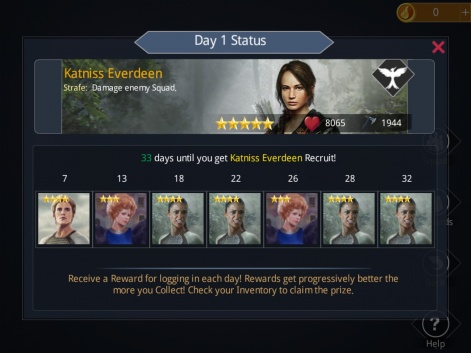
Daily missions with meaningful rewards are another strong feature that incentivizes players to return to your game and play. To step outside the mobile realm, playing a little bit of Destiny each day quickly became a habit thanks to the daily bounties. They reward enough XP that jumping in every night to collect 3 or 4 bounties has been the primary way I reached the cap at level 20.
What is important about this style of feature is not just its periodicity, but that the incentive is meaningful. Too often I feel like daily or weekly features fall down by failing to reward players with enough value.
Totally agree with Ethan.
Also, having to build up battle units in Clash of Clans-style games serves a similar purpose but ties more positively into the core gameplay – you come back because you can finally fight again, i.e. have a strong positive reinforcement.
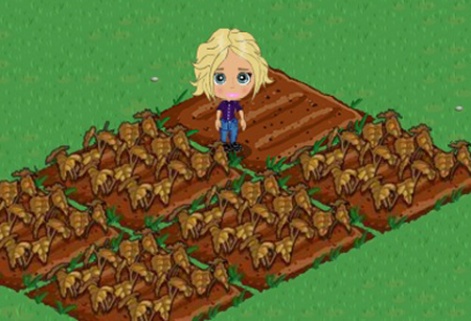
Lastly, narrative plays a role. That crops wither away somehow makes sense, whereas an ore mine that loses its produce wouldn't feel right.
I'd consider Game of War and similar VIP systems as a current best practice in terms of retention/loyalty mechanic.
Those are doing a great job of rewarding retention and at the same time introducing players to payer features and bonuses.
I think you are mixing up two different mechanisms in game design.
Withering is tied to an appointment mechanic: the player decides when to come back to the game by planting raspberries (which take 2 hours) or artichokes (which take 4 days) or whatever. She makes an implicit promise to the game to come back.
The wither mechanic, while unpleasant, does not feel unfair:Nicholas Lovell
Humans are conditioned, in almost every society, to keep their promises. Hence the wither mechanic, while unpleasant, does not feel unfair: "I made a promise, I didn't keep it, fair enough that I am punished."
A daily reward is just that: a reward for coming back every day. It doesn't harness the player promising the game to come back. It works on different psychological principles than the appointment mechanic above.
That said, an appointment mechanic doesn't need wither to work. The important bit is that the player chooses the time period and knows the benefits or consequences of coming back at the appropriate time. I prefer to influence this with positive boosts (get 2x rewards if you come back around the time of the appointment) than negative sticks (lose everything if you don't come back).
We are seeing many different ways of exploring these two systems: the "reward for coming back when you said you would" and the "reward for coming back every day for many days".
They both target retention, but they are fundamentally different in many ways.

Nicholas is correct about these being different mechanics. The user-dictated appointment (I will be back at this time) versus the game-dictated mechanics (there will be 6 new PvE bounties at 10am tomorrow) are different.
But the negative versus positive is really quite interesting from a behavioural economics perspective.
With a Destiny bounty, you have 24 hours to pick up a bounty, or it is gone forever and you lose the opportunity to gain those resources. With FarmVille, you have N time to harvest your crops or you lose the opportunity to gain those resources forever.
A player who is enticed will be happy to return, a player who was coerced will not.Mark Sorrell
In both cases, failure to collect before expiry means permanent loss. But in the Destiny case, you never 'owned' the bounty in the first place, so you feel no loss aversion or endowment effect. In FarmVille you did, and you do. That would suggest that, given that the mechanics are mechanically/mathematically identical, the Farmville one, with its extra psychological leverage, should win out, right?
Well, perhaps, but the issue with these sort of coercive, manipulative affects isn't that they don't work but that they do - they coerce and manipulate. People will only fall for that for so long, and when they snap out of the trap, they are no going to return. A player who is enticed will be happy to return, a player who was coerced will not.
Withering is an obviously negative outcome, so it's easy to see why it would put players off. But that's not to say that those effects can be used in more subtle and rewarding ways.
Many points have already been brought up and I mostly agree. I also think that it depends on your specific target audience. In a more hardcorish war game users tend to be more willing to accept losses. But if I just want to build up my happy farm and feel good about it I react negatively on losing stuff that I've already earned.
Another aspect is that the mechanic feels arbitrary even though it's explained in the game world. "It's not my fault that after 8 hours my crops are ruined. The evil game designer decided that for me!".
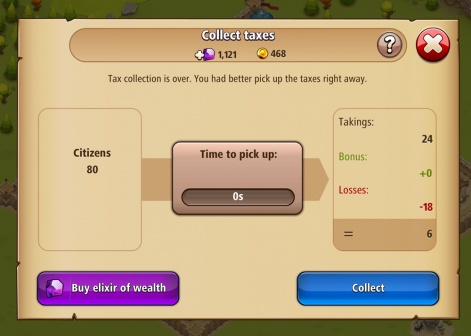
A good example for a retention mechanic that works with losses are competitive real-time strategy games. If you don't go online to defend your villages in time your enemy will steal your precious resources and murder your unprepared troops.
But as this is deeply rooted in the core gameplay and the timers are set by other players the users tend to accept their losses and are even motivated to retaliate.

I personally don't believe that withering mechanics are dead.
What I see is a polarization of this mechanic: casual games such as Hay Day and FarmVille have abandoned it while more male centered games such as Boom Beach and Clash of Clans have adopted this mechanic and taken it to extremes.
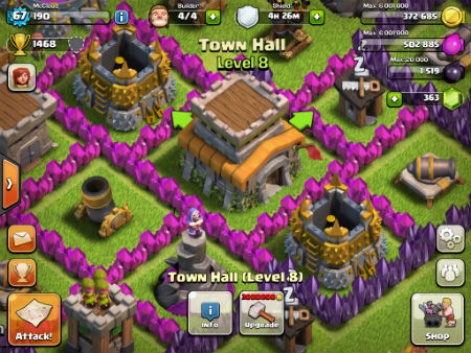
In all simplicity, withering is a mechanic that punishes player for not returning to the game on time. This is exactly the same mechanic that is successfully used in games like Clash of Clans, where players need to come back and invest their hard earned resources before their shields runs out and they get looted multiple times.
Oh, daily login bonuses and other gimmicks may buy you few more sessions but they're not "retention tools". Game mechanics that are fun, accessible and hard to master drive retention.

Expecting players to come back within a very limited window to "only" get the item they planted is a bad deal.Kevin Oke
For many of the reasons already listed I feel (and hope) we've moved past relying on the wither as a method for generating more play sessions.
It sounds like by-and-large we can agree that the wither mechanic in its traditional form is a very negative (in terms of contribution to the player's experience), punishment-centric mechanic.
Given the tremendous amount of competition today for people's mobile gaming time and money, expecting players to come back within a very limited window to "only" get the item they planted is a bad deal for the player.
Bonuses for coming back on time, while still awarding the player the item if they are late would make this mechanic more tolerable and force developers to innovate more. Because at this stage in F2P, leaning too heavily on the wither for play sessions is a very dubious strategy.

I think Michail is spot on, on the polarization of the wither. Players saw through the initial attempt, the very in-your-face type of wither, with robbing you of what was seemingly already yours.
Threats are such a powerful tool, and while the traditional wither might seem totally unfair, is still more forgiving than what we're seeing now. The new form simply shifts the blame, for the loss of resources, over to other players and upping the stakes - 'cause it really sucks being virtually mugged several times a day, while being away from the game, but I guess a lot of people my exact level, server and skill were online in that specific timeframe - darn it!
The player is no longer intuitively thinking they are playing to beat the game, and its 'withering' rules - but more projecting it over to other players, excusing this punishment with the fact that, they can do it themselves.
In my opinion the actual gameplay only changes slightly, as the player, in either case is afforded to plan their own return to the game, when e.g. shields are down or having to spend their resources and then coming back when mines (or respective secondary soft currency) are full.
I completely agree that wither and daily rewards are two very different mechanics, and in relation to the latter, I'm happy to see more and more games, especially those utilizing a gacha mechanic, using the daily bonus as a 'complementary quarter' to a purchase in the store.
The most recent example would be Mindy Candy's World of Warriors, throwing in a random reward for good measure.
In my opinion, this is a good shift away from the games, where daily bonuses are just another splash screen, 'awarding' you primary soft currency worth about 15 seconds of actual gameplay. A few more sessions like Michail says, but not a retention tool.

With over 15 years’ data mining experience, Mark co-founded deltaDNA, formerly GamesAnalytics, to unlock big data to drive player understanding, introducing the concept of Player Relationship Management to build better games.
Carrot is better than stick... subtlety is better than blunt. Players should always be incentivised to return to the game, not punished. Everybody has different commitments and punishing intermittent players who would be otherwise be well engaged will only lead to defection.
Players should always be incentivised to return to the game, not punished.Mark Robinson
Also we are starting to see players having different patterns of play - session lengths and combination of sessions so a one-size-fits-all return mechanism will probably not work for most players. You can improve retention by making appointment setting relevant to individual players playing patterns. That means the experience is more engaging.
Yes, the daily bonus is a more positive way to get players back into the game but offering increased rewards on specific days or hours where rewards are doubled and players want to play is also useful.
This is very much the carrot approach which works much better than the stick.

Jordan Blackman is a lead designer and producer with over ten years of experience designing, producing, and managing hit content for companies like Zynga, Ubisoft, NovaLogic, & Disney.
Over 80 million people have played games that Jordan worked on as either a producer or designer.
Jordan’s credits include Lead Designer on FrontierVille & CastleVille, Senior Producer and Original Concept on CSI: Crime City (Facebook), Producer on Delta Force: Black Hawk Down, and Writer on Joint Operations: Typhoon Rising.
The mechanic is based on "loss aversion," the well-established principle that people are more strongly motivated to avoid a loss than to pursue a gain. In fairness to FarmVille, withering also ensures a genuine "appointment" mechanic, because players actually have a window in which to harvest.
So, yes, the product benefit is that people are motivated by fear of missing out, but there are two important potential downsides:
Players who aren't yet retained won't care about the loss. So all you've really done is made their next experience less fun and probably less balanced. If a player is gone for a while (lapsed or otherwise indisposed), they might come back to a total mess. That sucks, and could be just enough reason for an engaged player to churn.
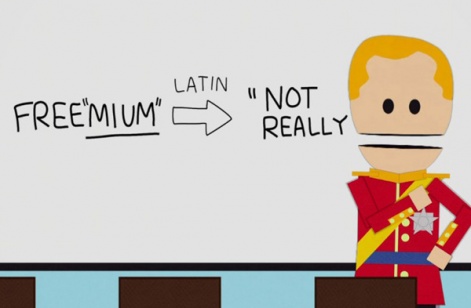
At Zynga, where I was working on FrontierVille our team added wither protection as an option for players. You see this in FarmVille too and it's similar to being able to buy village shields in Clash of Clans.
This can change the mechanic to be more about planning and closure. Of course it's a monetization vector too and I would say it makes a game a bit more hardcore.
We need mobile games and game designers to be divergent and to provide genuine fun.Jordan Blackman
And given the South Park episode portraying free-to-play mobile games as the work of "the Canadian devil", I want to remind all the game designers and product managers out there that mechanics like this can be useful, but it's much more important to create a great and compelling experience in your product.
At the end of the day, we need mobile games and game designers to be divergent and to provide genuine fun. So, if some kind of wither mechanic makes sense in your game and you have a fresh take on it, go for it! But it isn't per se right or wrong for retention, and it's not a simple mechanic to introduce.
So, while a daily return reward is a best practice, a wither mechanic isn't.


























